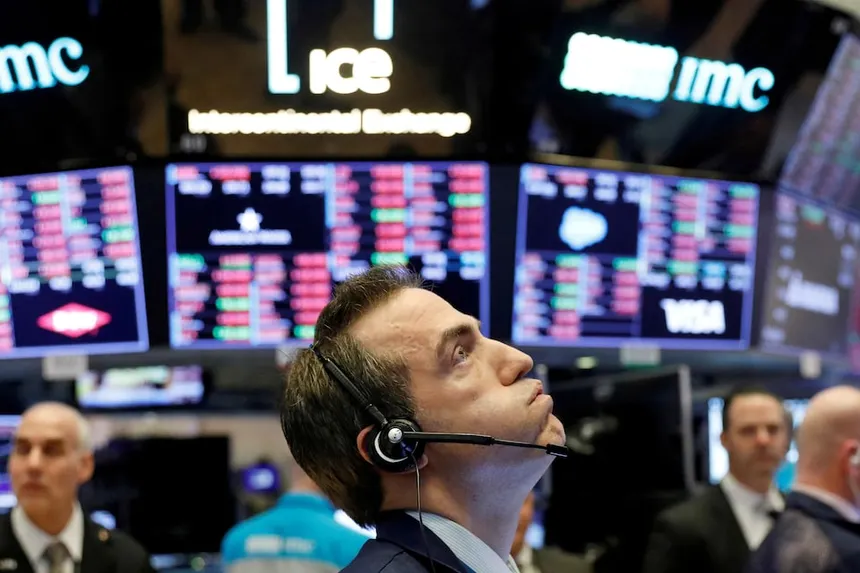The Growing Uncertainty in Financial Markets
The financial world is holding its breath as speculation rises over potential changes in interest rates. Investors, businesses, and policymakers are all closely watching central banks for their next move. Even small changes in interest rates can create ripples across the stock market, real estate, and consumer spending.
With inflation concerns, global economic instability, and market volatility, the stakes are higher than ever. What will happen if interest rates rise or fall? Let’s break down the possible effects and what investors should expect.

Why Interest Rates Matter So Much
Interest rates, set by central banks like the Federal Reserve or the Reserve Bank of India, are a key tool for controlling economic growth. When rates rise, borrowing becomes more expensive, slowing down spending and investment. When rates fall, borrowing becomes cheaper, encouraging growth but sometimes leading to inflation.
Key Factors Influencing Interest Rate Decisions
- Inflation Trends – If inflation rises, central banks may increase interest rates to stabilize prices.
- Economic Growth – If the economy is slowing, lower rates can help boost spending and investment.
- Employment Rates – A strong job market might encourage central banks to raise rates to prevent overheating.
- Global Financial Conditions – International economic trends, currency fluctuations, and geopolitical issues can influence rate decisions.

Possible Scenarios: What If Interest Rates Rise?
1. Stock Market Reaction
- Higher interest rates usually make borrowing more expensive for companies, reducing profits and lowering stock prices.
- Investors may shift from stocks to bonds, which offer better returns when rates rise.
- Tech stocks and high-growth sectors often get hit the hardest due to higher financing costs.
2. Real Estate and Housing Market Impact
- Mortgage rates will likely increase, making home loans more expensive.
- Higher costs could slow down the housing market, reducing demand and lowering property prices.
- Investors in real estate stocks or REITs (Real Estate Investment Trusts) might see lower returns.
3. Consumer and Business Borrowing
- Credit card interest rates, personal loans, and car loan rates will rise, making borrowing more expensive for consumers.
- Small businesses relying on loans may struggle with higher repayment costs, leading to slower expansion.
What If Interest Rates Drop? A Boon or a Bubble?
1. Stock Market Rally
- Lower borrowing costs often lead to stock market surges as companies expand more easily.
- Growth stocks, particularly in tech and innovation, tend to benefit the most.
- Investors may take on more risk, boosting speculative investments like cryptocurrencies.
2. Boost in Real Estate
- Mortgage rates would drop, making home purchases more affordable.
- Demand for property could increase, leading to rising home prices.
- Real estate investments, including rental properties, could become more attractive.
3. Increased Consumer Spending
- With lower loan rates, people are more likely to buy cars, homes, and other big-ticket items.
- Credit card debt becomes more manageable, increasing discretionary spending.
- Businesses could expand more rapidly, boosting job creation and wages.

Global Market Reactions: A Mixed Bag
While the U.S. and Europe are focused on interest rate movements, emerging markets also feel the impact.
- Stronger Dollar: Higher U.S. interest rates often strengthen the dollar, making imports more expensive for other countries.
- Debt Burden: Developing countries with dollar-denominated debt may struggle with repayments.
- Stock Market Fluctuations: Global investors may move funds from riskier emerging markets to safer bonds in developed countries.
On the other hand, if central banks cut rates, emerging markets could see capital inflows, boosting their economies and stock markets.
Expert Opinions: What Analysts Are Saying
Financial experts have mixed opinions about the direction of interest rates. Some believe central banks will hold rates steady to observe economic trends, while others predict gradual hikes to control inflation. Key insights include:
- JPMorgan Analysts: Expect slight increases to curb inflation without shocking markets.
- Goldman Sachs Report: Predicts no major rate changes in 2025 but warns of market volatility.
- Morgan Stanley: Believes lower rates are possible if recession risks grow.
What Should Investors Do? Strategies to Navigate Market Uncertainty
1. Diversify Your Portfolio
- A mix of stocks, bonds, and real estate can help manage risks.
- Consider investing in defensive sectors like healthcare and utilities, which perform well during economic downturns.
2. Keep an Eye on Bonds
- Rising rates make bonds more attractive; consider shifting some investments towards government or corporate bonds.
- If rates drop, bond prices will rise, offering capital gains potential.
3. Monitor the Federal Reserve and Global Central Banks
- Stay updated on policy decisions and economic reports to make informed financial decisions.
- Interest rate movements often depend on inflation reports, GDP growth, and employment data.
Conclusion: Brace for Market Volatility
Changes in interest rates can have a significant impact on markets, investments, and everyday financial decisions. Whether rates rise or fall, investors need to stay informed and plan ahead. With global economic uncertainty still in play, making smart financial choices and preparing for market swings will be crucial in the coming months.
Keep an eye on interest rate trends, diversify your portfolio, and be ready for potential economic shifts in 2025.
Do Follow USA Glory For More Updates.






